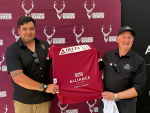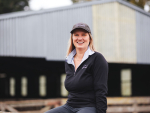THE HIGH-INPUT housed dairying that predominates in the US should be a pointer for New Zealand farmers on managing such ventures, says Crowe Horwarth managing principal Neil McAra, Southland.
McAra, recently home from a GEA/ANZ tour of farms in Wisconsin (a leading dairying state), says the visit underscored that New Zealand farmers must be clear on what they want to achieve by spending capital.
“They must know how their international competitiveness stacks up against the US because their farmers are using mega farms, with 2000-plus cows, to sell into the same markets we do,” he says.
These mega farms are competitive due to scale (40% of the US dairy supply), precision agriculture, modern technology, cheap labour (90% Hispanic, paid NZ$11.40-15.90/h), lower capital expense (US farmland half the price of NZ) and farming systems that suit the environment and economy.
“NZ land cost [requires] farmers to consider the return on investment in, e.g. irrigation systems, feed pads, cow houses and automated milking,” says McAra.
Also affecting spending decisions are skill requirements, setting realistic production budgets and environmental management, he says.
NZ farmers can counter the US threat with innovation and precision agriculture, up-skilling employees, leading well, adapting economically to manage environmental aspects, and by consolidating farms.
But McAra cautions that poorly managed high-input systems generate less cash than poorly managed low-input systems. DairyNZ research shows that fewer than 5% of farmers profit from running intensive systems.
Operating profit is the key to farm success, he says. Low operating costs/kgMS and high production/ha lift profit.
“Generally it takes 1kgDM to produce 1L of milk, so it’s essential to choose the cheapest, most efficient feed, especially in a low pay-out year when, based on the current milk price forecast, farmers will only receive 45c/L.”


















